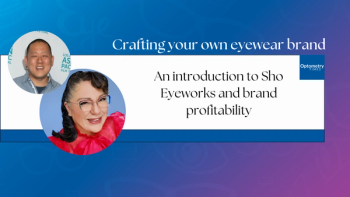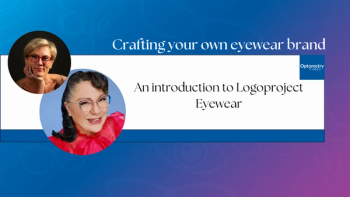
How to efficiently plan for practice succession
Cash flow trumps all
Orlando, Fla.—Ineffective succession planning can put practice owners in a vulnerable position. Without adequate organizational groundwork, the future of the practice may be put at risk, owners may take a significant tax hit, the full value of the business may fail to be realized, and owners may face increased difficulty obtaining long-term financing.
Adam Cmejla, CFP, discussed methods to efficiently plan for practice succession at Vision Expo East 2021. Armed with optometry-focused best practices, Cmejla equipped optometrists with tools to improve practice succession for the buyer, the seller, and the government. Cmejla is founder of Integrated Planning & Wealth Management, a Carmel, Indiana-based optometry-focused financial planning firm.
Cash flow trumps all
According to Cmejla, when transferring the value of ownership from one generation to the other, the only thing buyer cares about is “what is my predictability of future cash flow?”
Associates looking to take on practice ownership and equity want to know how quickly they will receive a return on an investment and what type of capital they need to make a purchase.
On the seller side, senior doctors must consider how they can sell their practice and which method works best for their situation. According to Cmejla, optometry—once it is a well-oiled machine—is a very predictable cash-flow generator. ODs should familiarize themselves, to exact dollar, with their practice’s inventory and use that to create a plan.
The 2 options owners have when selling a practice are:
· Asset sale
· Entity sale
Goodwill
Asset sales are the most popular with optometrists because the value of each asset (or goodwill) can be negotiated for tax purposes by both parties, making this type of sale advantageous for buyer and seller. A business with no liabilities may be more likely to sell the whole entity with an entity sale.
According to Cmejla, it benefits sellers to negotiate as much goodwill as possible because goodwill is taxed at a long-term capital gains rate.
“Goodwill is one of the most valuable parts of the sale for the current owner in today’s world,” Cmejla says.
Pitfalls to avoid
Sometimes, buying associates don’t stick around for a completed transaction. Life may get in the way, the associate may decide to join another practice, they might decide to cold start a practice down the street if a noncompete agreement was not in place. Sellers can avoid failed succession plans by talking early with associates about succession strategies. Cmejla suggests investing in a full year to “date” professionally.
“Build a relationship, build the reports, see if it makes sense to do business, and a year from starting that, evaluate where you stand,” Cmejla says. “Getting a piece of a bigger pie is better than maintaining the whole of a smaller pie. Be cognizant of that whenhaving conversations with your associate. If they even remotely convey to you that they are wanting to buy the practice or you are viewing them as a potential successor, take steps to effectively prepare 3 years in advance.”
Newsletter
Want more insights like this? Subscribe to Optometry Times and get clinical pearls and practice tips delivered straight to your inbox.













































